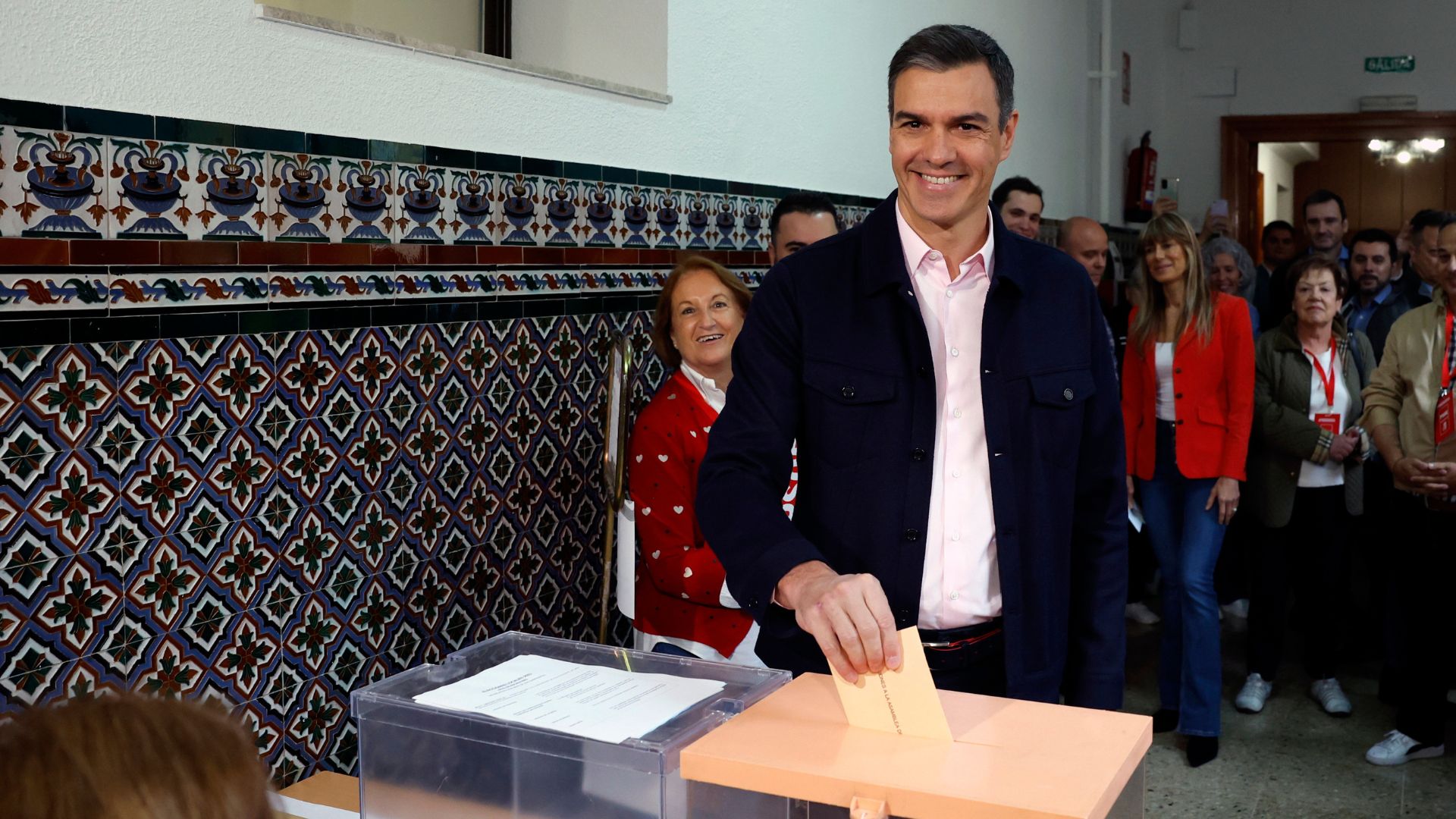New elections in Spain
Early elections are the best option for Prime Minister Sánchez

Spaniens Ministerpräsident Pedro Sánchez
© picture alliance / EPA | J.J.GuillenSpaniards will elect a new parliament on July 23, 2023, some five months earlier than planned. In doing so, Prime Minister Pedro Sánchez is attempting to take flight after his ruling Social Democratic PSOE suffered a resounding defeat on Sunday. In the nationwide local elections and regional elections in 14 of 17 autonomous regions/cities ("state elections"), the PSOE really crashed. Particularly painful is the loss of the regions of Valencia or Aragon, for example, but also of the city halls in Seville, traditionally a Socialist stronghold, or in Valladolid to the conservative PP ("Partido Popular"). It is a sign of deep-seated dissatisfaction among large parts of the population with the governing coalition of PSOE and the left-wing populist alliance "Unidas Podemos," which was tolerated by regional nationalist parties from Catalonia and the Basque Country/Navarre.
In the capital region of Madrid and in the capital of the country itself, the PP can even govern with an absolute majority in the future. The region's prime minister, Isabel Díaz Ayuso, acts in an economically liberal manner and has also marketed the capital region as a tourism and investment destination with a brash easing course during the Covid pandemic. It is noteworthy, on the one hand, that the PP has managed to conquer or expand its power in large urban centers nationwide and, on the other hand, that it has also been successful in socially less advantaged neighborhoods. In many regions and city parliaments, however, it will have to rely on cooperation with the right-wing populist party "Vox" ("Voice"), which seems to be establishing itself as the third force in the country. The liberal center party "Ciudadanos" ("Citizens") is no longer a possible coalition partner in the regions and large cities - it is hardly represented on the political map.
New elections on July 23
Monday morning, Pedro Sánchez informed King Philip VI of his decision to bring forward by five months the elections that were supposed to take place in December. The period of political bloodletting after the electoral defeat would have been too great, and possibly also the internal party pressure on Sánchez himself not to run again as prime minister. The move was nevertheless "a real Sánchez": politically risk-taking and Machiavellian. The following considerations may have played a role:
- The PP will now enter coalitions with VOX or be tolerated by the latter in some autonomous regions and city halls. Since, as things stand, this model is the only path to power for the PP at the national level as well, the PSOE election campaign is likely to focus heavily on preventing the right-wing populists from participating in government - not an absurd strategy under the impression that the ink is still wet under corresponding agreements at the regional/local level.
- The PSOE's coalition with the left-wing alliance "Unidas Podemos" is hated by many Spaniards, yet as things stand Sanchez is dependent on a new edition of the coalition if he wants to remain prime minister. With the new elections, he is forcing the squabblers among his coalition partners to work together, thus increasing their chances of election: Labor Minister Yolanda Díaz - moderate in tone, Spain's most popular politician and thus actually predestined to be the campaign's drawing card - is trying to unite the left with her "Sumar" platform, but so far she has not been able to count on the support of "Podemos" and in particular the former Podemos leader Pablo Iglesias, who continues to set the tone. Now both have 10 days to set up a joint election platform, and the pressure seems to be working - both politicians are suddenly more willing to compromise.
- The surprise effect. While Sánchez, among his closest confidants, is likely to have made important strategic decisions and prepared an election campaign for this scenario in recent weeks, the decision catches everyone else off guard and is likely to cause a flurry of activity at party headquarters.
- Communication: The new election decision quickly set a new topic, which the much and emotionally commented Spain will now be dealing with for weeks, whether professionally in the newsroom or at the bar. The overwhelming success of the conservatives in Sunday's elections is thus receding into the background to some extent.
Early elections are the best option for Sánchez
The EU Council presidency, which Spain holds in rotation in the second half of the year, will suffer as a result of the decision. Although Spain's highly professional civil service will manage the elections flawlessly, political support for important projects of the presidency, such as Europe's strategic autonomy or more sustainable relations with Latin America, will be sorely lacking in these times. The election month of July will be followed by the vacation month of August. By the time the new government is sworn in and has settled in to some degree, the Christ Child will be at the door. And this is true regardless of whether it is a new edition of the existing coalition or a change of government.
To sum up, Pedro Sánchez is living up to his reputation as a shrewd tactician. Given the poor starting position after Sunday's elections, early elections are his best option. Whether voters will ultimately reward this move will also depend on how quickly the opposition can adjust to the new scenario. The relationship between the two major parties and the political fringes and regional nationalists will shape the election campaign.
